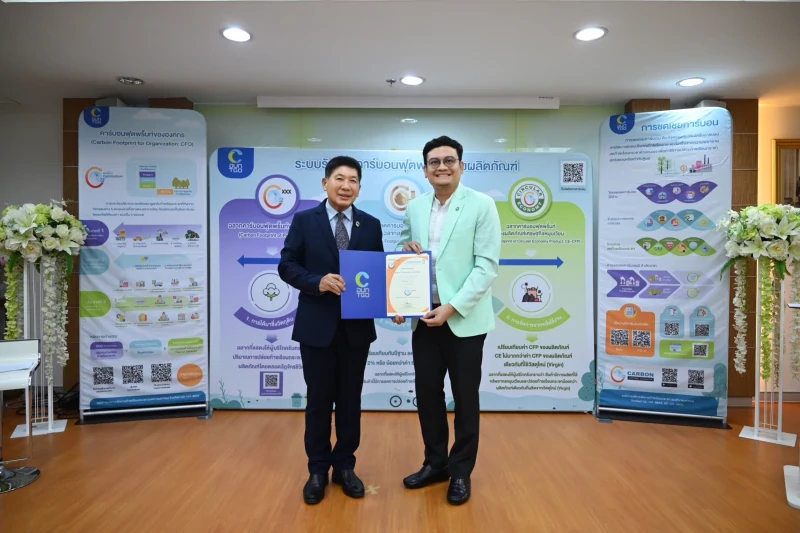31 October 2023
Bangchak Receives Carbon Footprint of Product Certificates
5 Bangchak Phra Khanong Refinery Products have Lower Carbon Dioxide Emissions than the National Average of Thailand

On Wednesday, 25 October 2023 Bangchak Corporation Public Company Limited received Carbon Footprint of Product (CPF) certification for five products. These products include 1. Fuel Oil, 2. Liquified Petroleum Gas (LPG), 3. High Speed Diesel, 4. Gasoline based, and 5. Illuminating or Industrial Kerosene (IK) from Thailand Greenhouse Gas Management Organization (Public Organization). Kiatchai Maitriwong, Executive Director, Thailand Greenhouse Gas Management Organization, presented the CPF certificates to Bangchak Corporation, represented by Dr. Anekpracha Kaewmanee, Vice President, Refinery Strategic and Business Development, Bangchak Corporation PLC.
The Carbon Footprint of Product label is an assessment of a product throughout its entire life cycle, quantified in terms of carbon dioxide equivalent (CO2eq). A product is assessed through its life cycle stages, which include material acquisition, production process, usage, and waste management at the end of its product life. This labeling provides consumers with information on the product’s greenhouse gas emissions throughout its entire life cycle. It supports consumers in their purchase decisions, leading to process improvements that increase competitiveness in the global market, strengthening the economy, and benefiting the sustainable development of the country. Bangchak’s five products have lower carbon dioxide emissions than the Thai national average, as assessed by the Open Government Data of Thailand, and they also have emissions lower than the average of domestic and international refinery benchmarks.
The Carbon Footprint of Product certifications are a part of the success that reflects Bangchak’s commitment to Breakthrough Performance, prioritizing process efficiency enhancements according to the BCP316NET plan, with the goal of achieving Carbon Neutrality by 2030 and Net Zero GHG Emissions by 2050.


